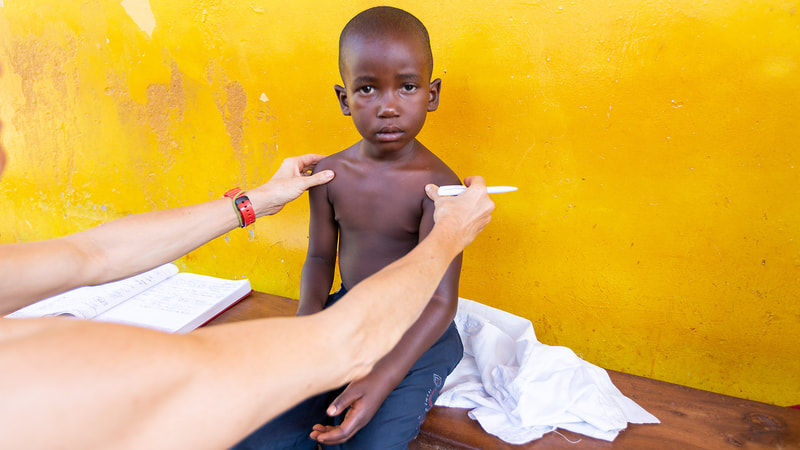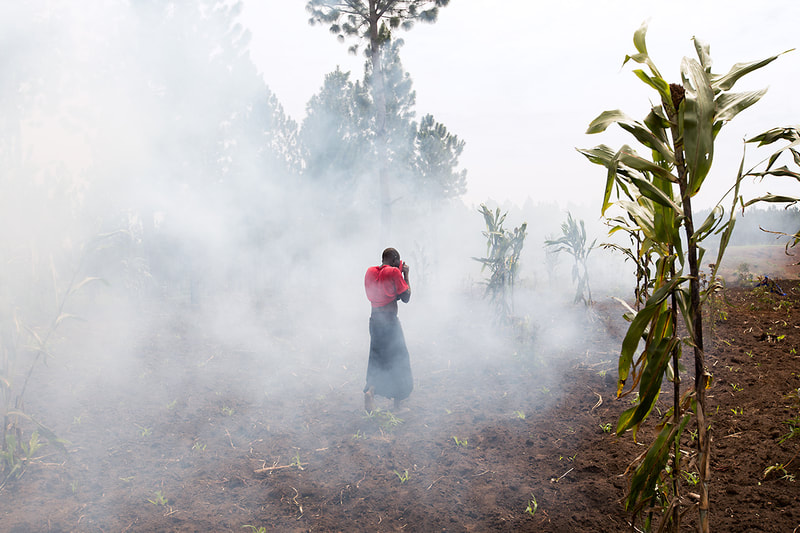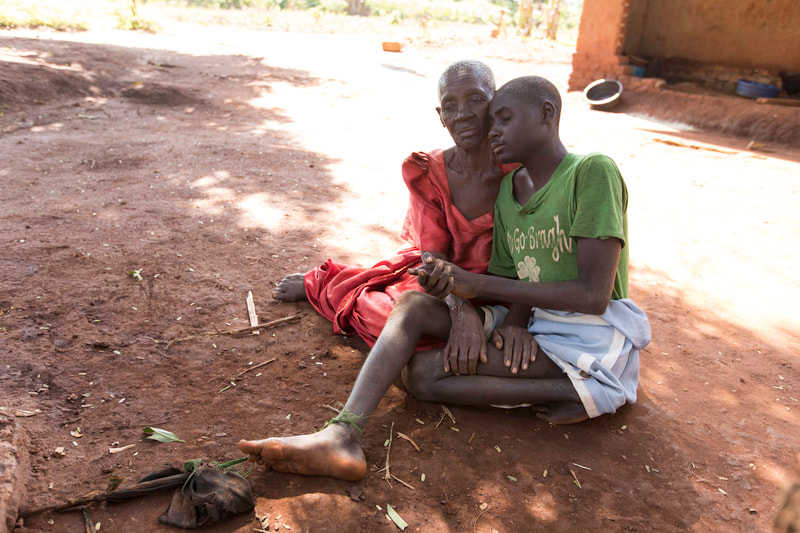Our History
In 2003, Dr. Jessie Stone came to Uganda on an expedition to kayak the Nile. During that trip, the expedition leader became very ill from malaria. Dr. Jessie successfully treated him and began to question; "if EJ contracted malaria and he was taking prophylaxis and sleeping under a net, what happens to the local people? Do they have malaria all the time? How do they deal with it?”
Shortly thereafter, Dr. Stone met a local woman from Kyabirwa village and together they conducted a 50 home survey — interviewing families on what they knew about malaria, how they dealt with it, how much money was spent on malaria treatment every month, how many family members had died from malaria, and if they owned and used a mosquito net.
The results of that survey were shocking. No one interviewed understood how malaria was transmitted and none owned mosquito nets. Everyone reported deaths from malaria in their families and a huge cost associated with treating malaria monthly. All the people interviewed also expressed an interest in learning about malaria transmission and prevention, including purchasing mosquito nets at affordable prices.
After discovering this, it was clear that malaria was keeping people in a cycle of poverty and it would be easy to start an education and prevention initiative for malaria that would be low cost, could help people to help themselves prevent malaria, and contribute to lifting them out of this cycle of poverty and poor health.
In 2004, Soft Power Health was founded with the malaria education and prevention outreach where communities are educated about malaria transmission and prevention and sold mosquito nets at heavily subsidized prices. This outreach continues to the present day and has the added component of home follow up visits to net purchasers homes to evaluate malaria knowledge retention and correct net use.
Shortly thereafter, Dr. Stone met a local woman from Kyabirwa village and together they conducted a 50 home survey — interviewing families on what they knew about malaria, how they dealt with it, how much money was spent on malaria treatment every month, how many family members had died from malaria, and if they owned and used a mosquito net.
The results of that survey were shocking. No one interviewed understood how malaria was transmitted and none owned mosquito nets. Everyone reported deaths from malaria in their families and a huge cost associated with treating malaria monthly. All the people interviewed also expressed an interest in learning about malaria transmission and prevention, including purchasing mosquito nets at affordable prices.
After discovering this, it was clear that malaria was keeping people in a cycle of poverty and it would be easy to start an education and prevention initiative for malaria that would be low cost, could help people to help themselves prevent malaria, and contribute to lifting them out of this cycle of poverty and poor health.
In 2004, Soft Power Health was founded with the malaria education and prevention outreach where communities are educated about malaria transmission and prevention and sold mosquito nets at heavily subsidized prices. This outreach continues to the present day and has the added component of home follow up visits to net purchasers homes to evaluate malaria knowledge retention and correct net use.






